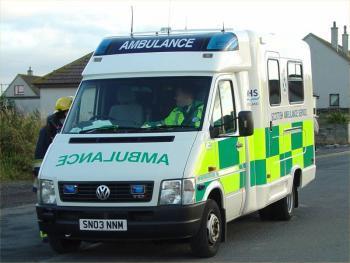Lives in north and north-east Scotland could be being put at risk because ambulance crews are taking too long to reach heart attack victims.
Shock new figures show that almost a third of mercy failed to reach people suffering cardiac arrest across Grampian and the Highlands within the recommended response time last year.
The statistics, obtained under the freedom of information legislation, also show that ambulances in the region took longer to reach heart attack victims than anywhere else in the country.
Just 68% of paramedics were able to reach people suffering cardiac arrest within the recommended eight minutes last year, compared to 70% in 2014.
The figures emerged as Health Secretary Shona Robison announced plans to train an extra 50 ambulance staff across the north and north-east.
But last night Scottish Conservative Highlands and Islands Holyrood candidate Douglas Ross said the figures showed it was “clear ambulance crews are not being sufficiently supported by the Scottish Government”.
He said: “The more time it takes for an ambulance to reach a heart attack patient, the poorer the outcome is likely to be for them.
“If this performance continues to slip, it’s very clear that lives will be put at risk.”
According to the Scottish Government, the eight-minute target exists because a “faster response time increases the potential for a positive health outcome”.
Ms Robison said the SNP administration was investing almost £12million in the Scottish Ambulance Service as part of a drive to hire more paramedics.
An ambulance service spokesman added: “Ambulance crews responded to an increase of 475 cardiac cases in Scotland last year, reaching 199 more cardiac patients than the previous year within eight minutes.
“This year will see 50 frontline staff recruited and trained for deployment in the Highlands and north-east to improve cover.
“Our emergency teams are saving more patients who have suffered cardiac arrest than ever before, as shown by the 21% improvement in resuscitation rates.
“Response times fluctuate throughout the year and are an important aspect of pre-hospital care, but the clinical expertise of ambulance teams is key to good patient outcomes and saving lives.
“They are monitored on an ongoing basis and are affected by a number of factors, including increases in demand, weather conditions, traffic congestion and turnaround times at hospitals.”
